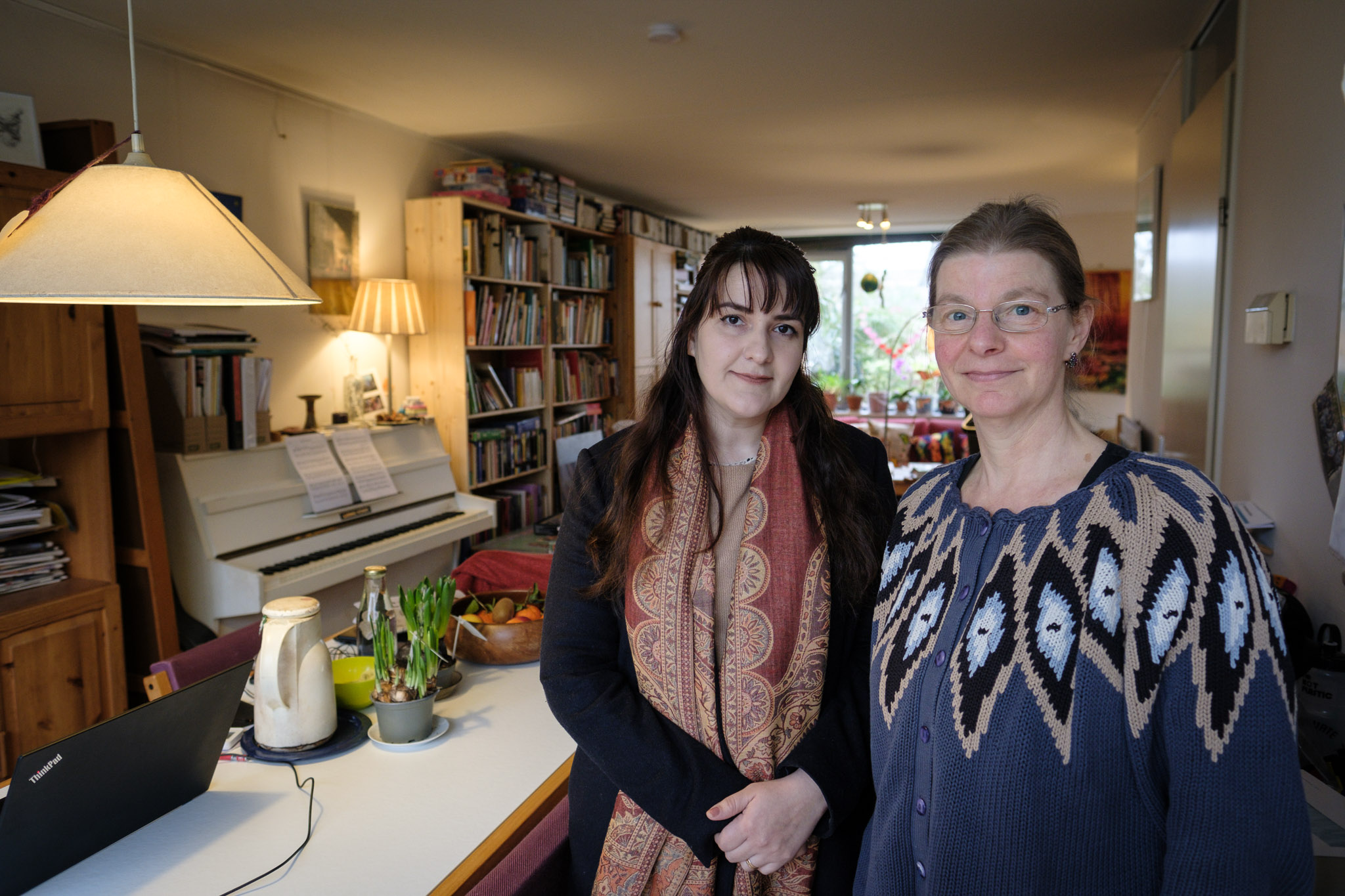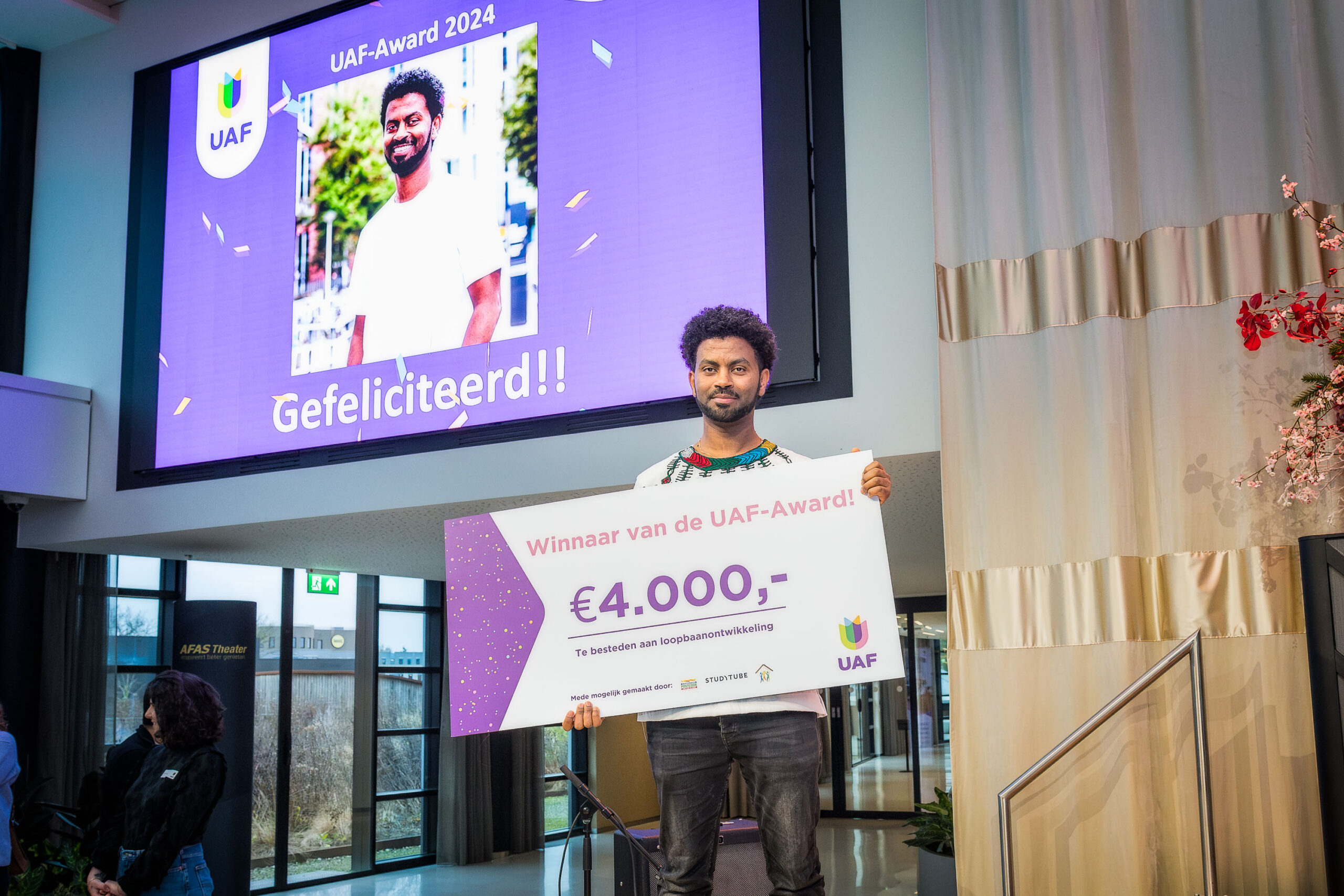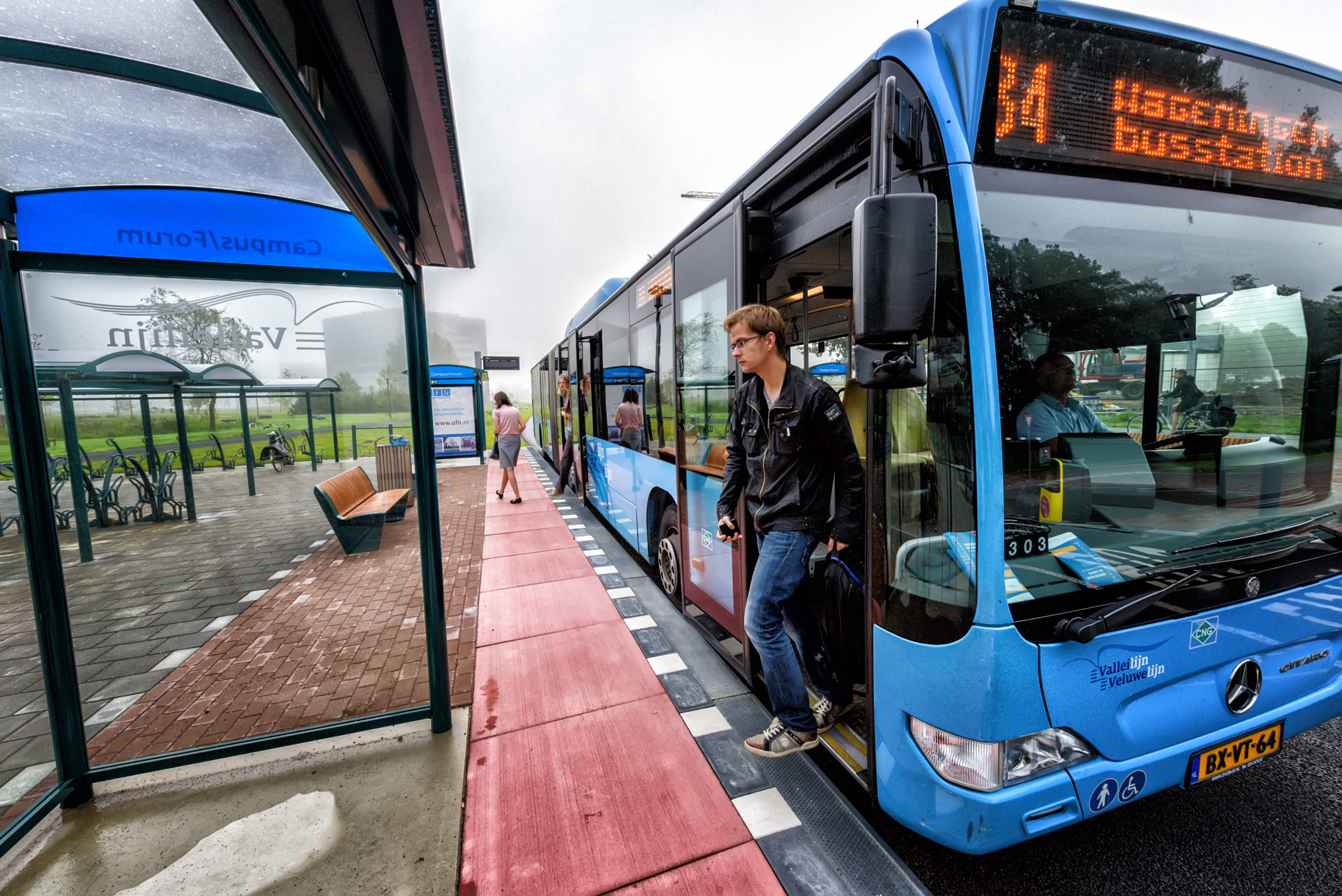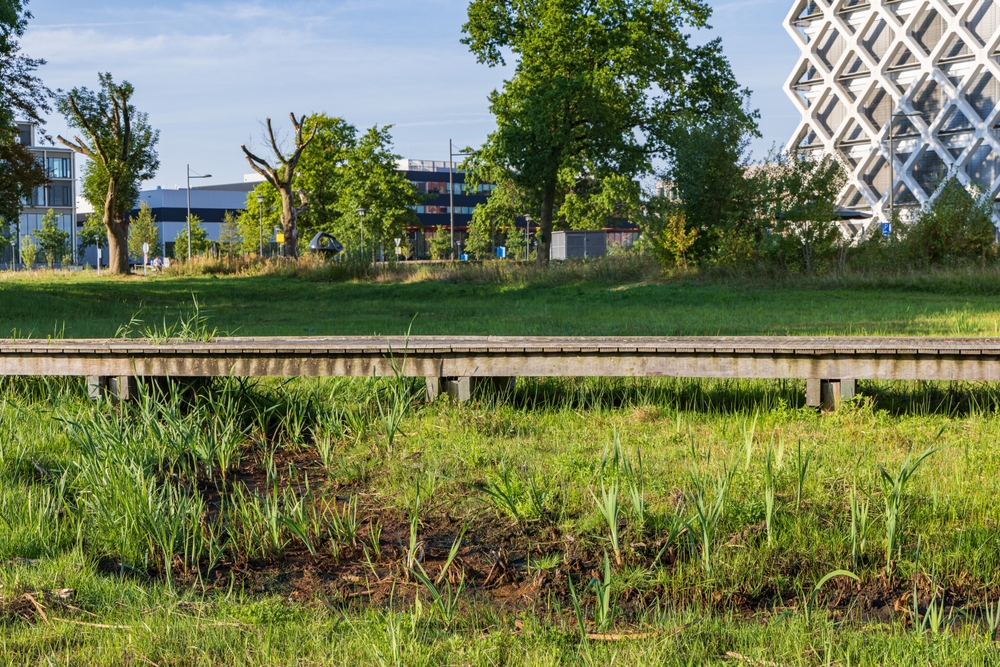This story is a cry for help. An urgent cry for help. Marjolijn Dannenburg, WURth-while coordinator, is looking for housing. Not for herself; she lives with her family (husband and 17-year-old son/daughter?) in a semi-detached house in Wageningen. But for her Afghan guests. Since early September, WUR guest worker Parisa Aqdas Karimi, her husband and their three children aged 9, 6 and 2 have been living in Dannenburg’s attic. And now it’s time for them to move on.
It all started last year after another cry for help when Karimi sent out an email appealing for support. As a university lecturer at Kabul University and an advocate of women’s rights, she was in danger. She had been teaching at the university since 2009. ‘And I also did work on human rights for NGOs. I taught women how to stand up for their rights. And for the American aid organization USAID, I taught women how they could become the leaders of the future.’
That was until the Taliban came to power in 2021. For her own safety, she rarely visited the university after that. When the Taliban found out who had been working on these programmes, Kabul was no longer safe for Karimi and she sent her cry for help out into the world. Including to WUR, where she had once taken an online course. The email came to the attention of Dannenburg. ‘I asked her to send me her qualifications. I wanted to know who she was, what kind of person I was dealing with,’ she says. ‘What struck me most was all the work she had done on empowering women and girls. I was particularly struck by one sentence in her email: “I worked with many NGOs, where I taught most of the girls to fight for their rights and never accept any kind of violence against themselves, as well as raise their voice in society in order to reduce gender sensitivity in Afghanistan.” I thought: goodness, what a strong woman. And now it’s her turn and she needs someone to help her.’
In the attic
Dannenburg found the Teaching and Learning Sciences chair group willing to look for a project for Karimi. ‘That worked out and I managed to arrange funding, which enabled her to get a visa for herself and her family.’ And so Parisa and her family travelled by bus from Kabul to Pakistan on 19 August. They really wanted to leave earlier but it was hard to obtain valid passports. Karimi: ‘Ours had expired and we couldn’t apply for new ones because we would probably have been arrested. We eventually managed to arrange passports through the black market.’
The two women met for the first time at Schiphol Airport nearly three weeks later, on 8 September. Dannenburg: ‘For eight months, we had only had online contact. It was a tense time not knowing whether they would make it. And then suddenly, there they stood, the five of them. That was really … wow! Like reaching the top of Mount Everest. I’d been doing all I could here in the Netherlands to make it happen, and they were doing the same in Afghanistan. And it’s quite funny that she is even shorter than I am! Two small women have managed to pull this off.’
In Afghanistan my daughter would soon not be allowed to go to school anymore
The Dannenburg family generously put up the guests in their own home. ‘I couldn’t find anything else. So many people are already putting up Ukrainians. And available housing was one of the conditions for permission to let them come to the Netherlands. I didn’t want to hold things up on that count. Her husband’s position was an important factor too. He had worked in the HRM department at the Ministry of Defence and had been wanted by the Taliban for some time. He was more or less in hiding and hardly ever left the house.’ The Afghan family has been living in Dannenburg’s attic for four months now. ‘At first it was quite difficult for both parties,’ says Karimi. ‘There are so many cultural and religious differences between us. But we are very happy here now and we are very grateful for the accommodation. The eldest two children go to the international school De Wereld and my husband works at Brocacef, a medical company that packages medicines, in Ede.’ And he has made a success of it, adds Dannenburg. ‘One Monday in October, he and I toured several employment agencies in Ede by bike. By Friday, he had a job. And within a month he was taken on permanently and given a pay rise.’
It soon became clear that there could be no question of returning to Afghanistan. ‘My colleagues in Kabul warned me that the Taliban knew I had worked for NGOs. They are against you. If you go back, you don’t know what will happen to you.’ The past two years have been full of stress and depression, which also contributes to the decision. ‘When I came to the Netherlands, I was disappointed and desperate. I have had a lot of support here at WUR. Things are going well, and I get to write a PhD proposal. I am happy to be here in the Netherlands. Especially on behalf of my daughter, who is nine now. In Afghanistan, she would soon not be allowed to go to school anymore. Here she can learn what she wants.’
Hope
As a guest worker, Karimi is eligible for a ‘job-seeking year’ for workers with a higher education. She could write her PhD proposal in that year and look for funding. ‘But then they need housing,’ says Dannenburg. ‘Two families sharing a house designed for one family is not a tenable situation.’ What is more, it is urgent: the family’s temporary residence permit expires on 19 January. After that, neither Parisa nor her husband are allowed to work and they must report to the Central Agency for the Reception of Asylum Seekers (COA) in Ter Apel. It would be good if they were sent to the Asylum-seekers’ Reception Centre (AZC) in Wageningen, but that is uncertain. Dannenburg: ‘We are really hoping for that. Then they can carry on with their lives here, to a large extent. The children are doing well at school. As a family, they’ve got things pretty much figured out here. They have every prospect of making a success of living here in the Netherlands. But the COA can’t promise anything.’
I hope that this story will prompt someone to come forward who can help
‘I’ve often wondered: why am I doing this?’ says Dannenburg. ‘Parisa is just one woman. There are hundreds, maybe thousands, who are in the same situation as her. Okay, but is that a reason not to do anything? The Talmud says: those who save one person save humanity. During World War II, people hid Jews in their homes. An awful lot of Jews were killed nevertheless. But that didn’t make it any less worthwhile to save the few you could. I hope that this story will prompt someone to come forward who can help.’
Dannenburg hopes that WUR too will want to do something for all those other Parisas. ‘I would like WUR to extend the solidarity it shows Ukrainians to Afghan scientists as well’. The women especially. ‘Tears are shed in my house about students of Parisa’s who are not allowed to take their exams, after a Taliban ruling in December, and who therefore cannot graduate and have only one future option left: to marry. But who? Most of the more progressive men have already left the country. Should they marry illiterate men, Taliban fighters? They have no rights anymore. Everything has been taken away from them. Education for all is one of the global sustainability goals. Surely WUR should be able to do something towards that? Through online education, for example, or systems like Scholars at Risk.’
It is no coincidence that the use of online learning resources is the topic Karimi has been working on in recent months. She would like to do a PhD on it. ‘Maybe online education can bypass Taliban restrictions. I want to give Afghan women hope again. I hope the world won’t forget Afghan women.’

 Afghan Parisa Aqdas Karimi (left) lives with her husband and their three children aged 9, 6 and almost 2 in the attic of Marjolijn Dannenburg and her family. Photo Guy Ackermans
Afghan Parisa Aqdas Karimi (left) lives with her husband and their three children aged 9, 6 and almost 2 in the attic of Marjolijn Dannenburg and her family. Photo Guy Ackermans 

